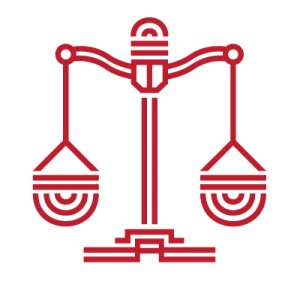Best Collaborative Law Lawyers in Midrand
Share your needs with us, get contacted by law firms.
Free. Takes 2 min.
Free Guide to Hiring a Family Lawyer
List of the best lawyers in Midrand, South Africa
About Collaborative Law in Midrand, South Africa
Collaborative Law is a modern approach to dispute resolution that is gaining traction in Midrand, South Africa. This method emphasizes a cooperative, rather than adversarial, process for resolving legal disputes, particularly in family and matrimonial matters. Collaborative law involves both parties and their lawyers committing to resolve issues amicably without the use of court litigation. Instead of engaging in protracted and often costly court battles, collaborative law allows individuals to work together to find mutually beneficial solutions with the guidance of legal professionals.
Why You May Need a Lawyer
There are several common situations where legal assistance in collaborative law becomes essential:
- Divorce or separation, especially when children are involved
- Negotiating parenting plans and child custody arrangements
- Division of marital assets and finances
- Resolving disputes related to maintenance or spousal support
- Addressing family business ownership or succession planning
- Drafting settlement agreements outside of court
- Handling disputes between business partners in a non-contentious manner
- Wishing to avoid the emotional and financial stress associated with litigation
A lawyer trained in collaborative law can ensure your rights and interests are protected throughout the process, facilitate constructive communication, and guide you through negotiations.
Local Laws Overview
Collaborative law in Midrand operates within the broader framework of South African civil law, with specific focus under the Children’s Act 38 of 2005 and the Divorce Act 70 of 1979. Although South African law still relies largely on adversarial court proceedings, collaborative law is supported as an alternative dispute resolution (ADR) mechanism. This approach is voluntary, confidential, and aims for cooperative problem-solving, resulting in binding agreements that, with court approval, become as enforceable as any court order. Collaborative law practitioners in Midrand must be qualified attorneys with specialized training in negotiation and dispute resolution.
Key aspects of local laws impacting collaborative law include:
- Legal recognition of settlement agreements made outside of court, provided they comply with statutory requirements
- Protection of children’s best interests, particularly in family law disputes
- Provisions for full financial disclosure by both parties during negotiations
- Requirement that parties and their lawyers sign a participation agreement stating that there will be no court applications while collaborative negotiations are ongoing
Frequently Asked Questions
What is collaborative law?
Collaborative law is a legal process where parties work together, with the support of specially trained lawyers, to resolve disputes amicably without going to court.
How does collaborative law differ from mediation?
In collaborative law, each party has their own lawyer present throughout the process, while in mediation a neutral mediator facilitates discussions, and lawyers may or may not be present.
Is collaborative law legally recognized in South Africa?
Yes, agreements reached through collaborative law can be made legally binding and enforceable when formalized through the courts.
Can collaborative law be used for all types of disputes?
While most common in family law matters, collaborative law can be applied to business, employment, and some civil disputes as long as all parties are willing to participate.
What happens if the collaborative process fails?
If a settlement is not reached, the collaborative lawyers must withdraw, and the parties may hire new lawyers to proceed with litigation.
Is collaborative law confidential?
Yes, discussions and disclosures made during the collaborative process are confidential and cannot generally be used in court if negotiations break down.
How long does the collaborative law process take?
The timeline varies, but collaborative law is often faster than litigation, sometimes reaching resolution in a matter of weeks or a few months, depending on complexity.
What does it cost to use collaborative law?
While costs depend on the complexity of the issues, collaborative law is generally less expensive than traditional litigation because it avoids court appearances and prolonged processes.
Do I need a specially trained lawyer for collaborative law?
Yes, lawyers must have specialized training in collaborative law and agree to uphold the cooperative approach and the participation agreement.
How can I find a collaborative law professional in Midrand?
You can contact local attorneys’ associations, legal advice clinics, or search for legal practitioners who state collaborative law as part of their expertise.
Additional Resources
Several organizations and resources are available for those seeking collaborative law assistance in Midrand:
- Law Society of South Africa (LSSA) - maintains a directory of legal practitioners
- South African Association of Collaborative Professionals - dedicated to promoting collaborative practice
- Gauteng Family Law Forums - provides guidance on finding collaborative law services in the province
- Legal Aid South Africa - offers basic legal guidance to those who qualify
- Midrand Community Advice Office - community-based legal support and referral services
Next Steps
If you believe collaborative law is the right approach for your situation, consider the following steps:
- Seek an initial consultation with a collaborative law practitioner in your area
- Discuss your situation openly and honest with your chosen lawyer
- Ensure your lawyer has received specialized training in collaborative law
- Prepare to participate in transparent discussions, including full disclosure of relevant information
- Work with your lawyer and the other party to sign a participation agreement and begin the collaborative process
- If you need assistance finding a collaborative lawyer, contact local legal societies or advice offices for referrals
Taking these steps will help you approach your legal dispute in a constructive manner, minimize conflict, and increase the likelihood of achieving an outcome that suits all parties involved.
Lawzana helps you find the best lawyers and law firms in Midrand through a curated and pre-screened list of qualified legal professionals. Our platform offers rankings and detailed profiles of attorneys and law firms, allowing you to compare based on practice areas, including Collaborative Law, experience, and client feedback.
Each profile includes a description of the firm's areas of practice, client reviews, team members and partners, year of establishment, spoken languages, office locations, contact information, social media presence, and any published articles or resources. Most firms on our platform speak English and are experienced in both local and international legal matters.
Get a quote from top-rated law firms in Midrand, South Africa — quickly, securely, and without unnecessary hassle.
Disclaimer:
The information provided on this page is for general informational purposes only and does not constitute legal advice. While we strive to ensure the accuracy and relevance of the content, legal information may change over time, and interpretations of the law can vary. You should always consult with a qualified legal professional for advice specific to your situation.
We disclaim all liability for actions taken or not taken based on the content of this page. If you believe any information is incorrect or outdated, please contact us, and we will review and update it where appropriate.











